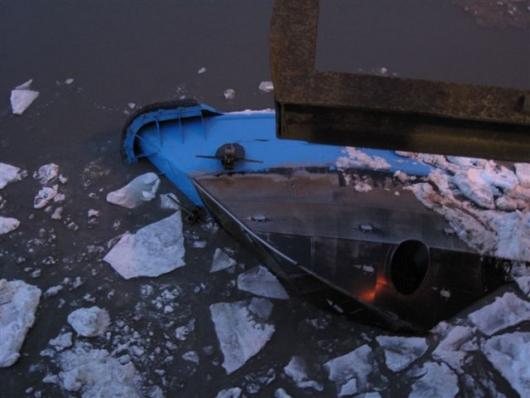Legal Update : Decision of Interest

On December 22, 2016, the U.S. District Court for the District of Columbia issued a notable opinion in Water Quality Insurance Syndicate v. United States of America. In comprehensive fashion, the Court reversed the U.S. Coast Guard’s National Pollution Funds Center’s denial of WQIS’ $1.89 million dollar claim for oil spill cleanup costs and granted the Water Quality Insurance Syndicate’s motion for summary judgment.
The court determined that the NPFC’s conclusions were arbitrary and capricious, and therefore, unsustainable. This decision will have significant implications for vessel Owners/Operators and pollution liability insurers. Beyond maritime jurisdiction, this decision will serve to ensure that Federal agency decisions and determinations are based upon the recorded facts, with all relevant evidence considered.
Facts:
The case before the court involved the supply vessel MONARCH. The Monarch’s captain was maneuvering in complete darkness through thick ice packs trying to land alongside the platform. The vessel collided with the platform and sank, resulting in a spill of 38,000 gallons of oil into Cook Inlet, Alaska. The owner of the MONARCH and WQIS responded and successfully recovered a large portion of the oil. WQIS’ assured, Ocean Marine Services, Inc. was the ‘responsible party’ under the Oil Pollution Act of 1990 (“OPA”), and its liability would be limited by law to $800,000 (limitation in force at the time of the incident) unless the MONARCH’s captain was deemed to be grossly negligent. WQIS incurred nearly $2,700,000 in cleanup costs and expenses and filed a claim for reimbursement from the Oil Spill Liability Trust Fund. The OSLTF was created under OPA and is managed by the Coast Guard’s National Pollution Funds Center (“NPFC”). WQIS’s initial claim was denied by the NPFC, eighteen months after submission, on the basis that the captain was grossly negligent. WQIS then submitted a Request for Reconsideration, with additional evidence to the NPFC. Well over one year later, the NPFC still had not responded. Therefore, WQIS sought judicial review under the Administrative Procedure Act (APA) by commencing a lawsuit against the United States in the district court.
Two months after WQIS commenced the lawsuit, the NPFC issued a “Second Determination” in which it again denied the claim due to the captain’s “gross negligence,” and determined that it was not bound by the Coast Guard’s own investigation and conclusion.
The NPFC had determined there was ‘gross negligence’ by the captain of the MONARCH.
Decision:
The district court offered several reasons for its decision to grant the Water Quality Insurance Syndicate’s motion for summary judgment. The NPFC disputed critical findings by the United States Coast Guard in its investigation and incorrectly defined the “gross negligence” standard applicable to claims for reimbursement under the Oil Pollution Act.
The Coast Guard in Alaska had thoroughly investigated the casualty and attributed the cause of the incident to the thick ice, darkness and swift currents as well as to crew fatigue due to operating in such conditions. The Coast Guard found that the master simply had “lost situational awareness” by concentrating on maneuvering the vessel through the ice flows instead of the vessel’s approach to the platform.
Since the NPFC concluded that the incident was caused by the captain’s gross negligence, the responsible party was ineligible for limitation under OPA 90. Relying on its own definition of “gross negligence,” the NPFC found that the captain failed to exercise the “higher degree of care” required when maneuvering a vessel through ice and currents.
In a ruling of first impression, the district court held that the Fund’s Second Determination should be stricken from the administrative record because it was untimely. Under OPA 90, the NPFC had 90 days to respond to WQIS’ Request for Reconsideration. Therefore, the “final agency action” subject to judicial review under the APA was the Fund’s First Determination.
The district court also found that the NPFC’s definition of “gross negligence” was incorrect. Congress did not define “gross negligence” under OPA 90, nor did Congress grant the NPFC the authority to define such a term. The district court, therefore, looked to OPA 90’s companion natural resource damage statutes and to the Comprehensive Environmental Response, Compensation, and Liability Act of 1980 (“CERCLA”) and found a definition of “gross negligence” that required “reckless, willful, or wanton misconduct.” The NPFC’s own definition, in comparison, did not capture the same notion of deliberate and conscious disregard to the risks.
“Viewing the OPA within the context of its parallel and predecessor statutes with similar purposes evinces Congress’s intent to provide for limited liability, unless the responsible party engaged in egregious “misconduct” that was wanton, willful, or reckless. This definition brings the OPA’s standard of “gross negligence” in line with its sister and predecessor statutes, ensuring maintenance of Congress’s careful balance between encouraging parties to engage in public welfare enhancing, but nonetheless inherently risky, conduct –ie., oil exploration, production, and transportation- while discouraging conduct amounting to wanton or reckless disregard of the risks involved.”
The court also noted that the local Coast Guard personnel who investigated the incident had superior knowledge regarding the conditions experienced by the vessel and her crew. The district court held that the NPFC’s decision to deny recovery was arbitrary and capricious. It set aside the decision and remanded the matter back to the NPFC to correctly adjudicate the claim for reimbursement.
On February 17, 2017, the United States of America filed a notice of appeal in the matter. On February 24, 2017 the United States of America filed a motion for voluntary dismissal of the appeal, and on February 27, 2017, the United States Court of Appeals for the District of Columbia ordered that the motion be granted and the appeal dismissed. The decision as is remains the law in this important jurisdiction.
For additional information or to request a copy of the Memorandum Opinion, please contact our claims department.
WQIS v. USA, 2016 WL 7410549 (District of Columbia).
